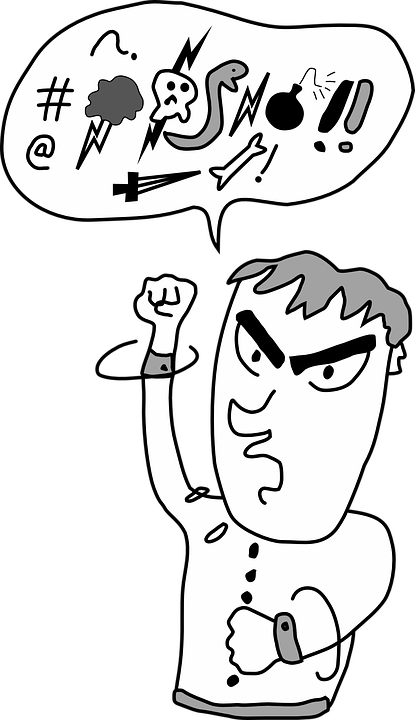Using curse words is often regarded as lazy and unprofessional and can sometimes even represent a lack of intelligence. It can be aggressive or emotional or, in many cases, humorous.

But why are these specific words regarded with so much more scrutiny than any other everyday word?
Look at it this way: like every word in our language, swear words are composed of various letters to convey meaning. They’re an assortment of consonants and vowels that express an idea or emotion.
Simple, right?
So why are we giving these essentially harmless words this weird power? Why am I writing this article right now and having to avoid using the actual words I’m writing about? I can’t even use the words that I’m talking about because there’s such a stigma around them, even though the goal of this entire piece is to convey my thoughts on them.
Disregarding any use of any word in an offensive or demeaning way, which I very much do not condone, why can’t I throw out my favorite four-letter word in a text to my mom without her freaking out? Why can’t I yelp out an exclamation when I stub my toe or slip on some ice in the wintertime?
Growing up, even through my first few years of high school, I never really had an urge to use any “bad words.” My friends did, my dad did, everyone did. And although I didn’t really have anything against those words, I never felt the urge to use them myself.
And then I got a job working in a restaurant and boy, did my vocabulary broaden.
Hearing the cooks and servers and even managers swearing like sailors all day, every day was a change. My own habits merged with those around me and in no time, I was dropping F-bombs like it was nothing.
And now here we are, I’m 20-years-old and profanity holds virtually no meaning to me. I’m using it in essays and in tweets and in my everyday language without even thinking about it, and that’s definitely dangerous, but again: why?
In a study conducted by Dr. Richard Stephens, he found that using swear words strengthens one’s ability to withstand pain for a longer period of time, and Emma Byrne wrote in her book Swearing Is Good for You: The Amazing Science of Bad Language that profanity can even build trust and relationships in the workplace, according to National Geographic.
There are actual, real-life examples of why the use of these words can be beneficial, and people still disregard them as something we’re not supposed to say.
We’re making up these crazy rules regarding words that only hold this taboo meaning because we let them. We’re giving them the power to be something so radical for no reason.
We need to get away from the idea that swearing is “bad.” We need to realize that they’re just words, get off our high horses, and drop that F-bomb every once in awhile.


